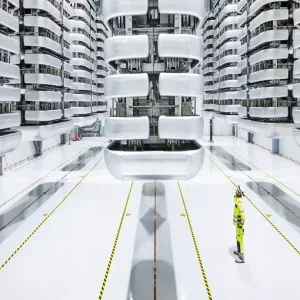Syria and Jordan have renewed their commitment to building a storage and hydroelectric dam on the Yarmouk river, a decade after the last attempt to implement the project collapsed because of funding problems.
An agreement to relaunch the scheme was signed in May during a meeting in Damascus of the Syrian-Jordanian Yarmouk Committee. The river, a tributary of the Jordan, forms part of the two countries’ common frontier.
Jordan’s Water and Irrigation Minister, Dr Mundhir Haddadin, said that the dam would be about 100m high and would have a storage capacity of 225M m3. It would provide Jordan with 315M m3 of water per year and Syria with 8M m3 per year. About 70% of the scheme’s power output would go to Syria.
The project was first agreed in 1987. Hydraulic, geological and engineering studies were completed and a diversion tunnel was bored in the Maqarin area. The World Bank agreed funding only if Israel, which controls the final 23km of the river’s northern bank, agreed the scheme in principle. Tel Aviv, however, opposed the project and funding was frozen.
Dr Haddadin has now said that new studies would be conducted, together with a drive to secure funding.
Jordan, which has signed a peace treaty with Israel, has kept the Israelis informed of developments. Israeli press reports have cited officials from Israel’s Infrastructure Ministry as saying that ‘no action undertaken by Jordan and its neighbours in the Yarmouk river is in violation of the agreements Jordan has signed with the government of Israel’.






